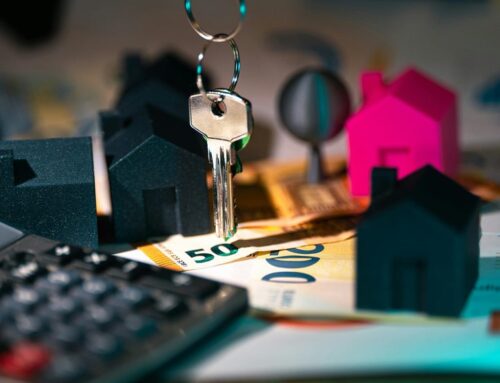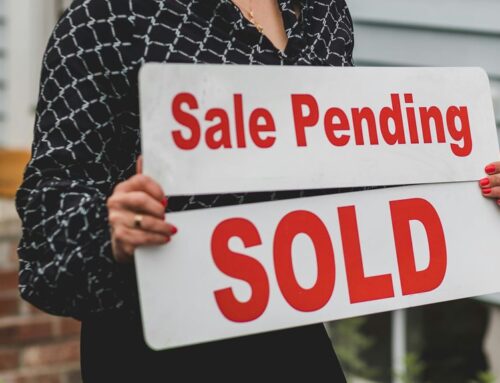Price your home to sell quickly so do you know that homes priced just right can sell up to 50% faster than those that are overpriced? Understanding how to set a competitive price is essential if you want to attract serious buyers quickly. You’ll need to take into account various factors, from recent sales in your area to the unique features of your home. But how do you effectively balance these elements to create the perfect price? Let’s explore the steps you can take to guarantee your home stands out in today’s market.
Ready to Price Your Home Right for a Fast Sale? Discover expert tips on pricing your home competitively to attract buyers and close the deal quickly. At Cash4Houses, we simplify the selling process by providing fair cash offers based on your home’s true value.
Don’t leave money on the table! Start your journey to a quick sale today Get Your Free Cash Offer Now!
Understand Your Local Market
To price your home effectively, you need to grasp the current trends and conditions of your local real estate market.
Start by researching recent sales in your neighborhood, paying attention to how long homes are staying on the market. If properties are selling quickly, it might indicate high demand, while longer times could suggest a buyer’s market.
Next, keep an eye on local economic factors such as job growth, population changes, and interest rates, as these can greatly influence buyer behavior.
Don’t forget to take into account seasonal trends; many buyers are more active in spring and summer.
Analyze Comparable Properties
Analyzing comparable properties, or ‘comps,’ gives you a clear benchmark for pricing your home competitively in the current market.
Start by gathering data on homes similar to yours that have sold recently. Look for properties with similar square footage, number of bedrooms and bathrooms, and in the same neighborhood.
Pay attention to the sale prices, as these reflect buyers’ willingness to pay. You should also note the days on the market, which can indicate demand.
By comparing your home to these comps, you can set a realistic price that attracts buyers. Remember, being too high might deter interest, while pricing too low could leave money on the table.
Aim for a price that aligns with the current market trends for a quick sale.
Consider Home Condition and Upgrades
When pricing your home, consider its condition and any upgrades you’ve made, as these factors can greatly influence buyer interest and your asking price.
If your home is in excellent condition with modern fixtures, you can typically set a higher price. On the other hand, if it requires repairs or updates, you might need to adjust your expectations accordingly.
Think about any significant renovations, like a new roof, updated kitchen, or energy-efficient windows. These can add considerable value.
Don’t forget about curb appeal—first impressions matter! A well-maintained exterior can attract more potential buyers.
Factor in Market Trends
Understanding current market trends is essential for determining the right price to attract buyers quickly.
Keep an eye on local housing data, such as average sale prices and the number of homes sold. If you notice prices rising or falling, align your pricing strategy accordingly.
Pay attention to seasonal trends, too; some times of the year attract more buyers, influencing your pricing decisions. Additionally, consider the interest rates and economic conditions, as these factors can affect buyer behavior.
Set a Competitive Price
Setting a competitive price is essential to grab buyers’ attention and guarantee your home sells quickly. If you want to attract potential buyers, consider these key strategies:
Research comparable homes in your area to understand pricing trends.
Evaluate your home’s unique features and how they impact its value.
Stay flexible and open to feedback from potential buyers.
Collaborate with a real estate agent who knows the local market well.
Adjust your price if your home isn’t generating interest within the first few weeks.
Conclusion
In the fast-paced world of real estate, pricing your home right can pave the path to a speedy sale.
By staying savvy about your local market, comparing comparable properties, and considering your home’s condition, you can create a competitive edge.
Don’t forget to factor in market trends for maximum impact.
So, seize the opportunity, set a smart price, and watch as buyers flock to your fabulous property.
Quick sales can happen when you make the right moves!
Frequently Asked Questions
How Can I Determine My Home’s Emotional Value?
Determining your home’s emotional value isn’t as simple as counting memories. You reflect on cherished moments but remember, feelings don’t pay the bills. Balance those emotions with market realities for a clearer perspective on worth.
Should I Consider Pricing Strategies for a Bidding War?
You should consider pricing strategies for a bidding war. Setting a slightly lower price can attract more buyers, creating competition that drives the price up. It’s all about maximizing interest and urgency in the market.
What Are Common Mistakes Sellers Make When Pricing?
When you underestimate your home’s value, it can feel like a missed opportunity. Sellers often ignore market trends, overprice due to emotional attachment, or fail to contemplate necessary repairs, leading to prolonged listings and disappointment.
How Does the Time of Year Affect Home Pricing?
The time of year impacts home pricing considerably. In spring and summer, demand often rises, allowing you to price higher. Conversely, winter may bring lower buyer interest, prompting you to adjust your pricing strategy accordingly.
Can Staging My Home Influence Its Price?
Staging your home can influence its price. When you create an inviting atmosphere, buyers envision themselves living there, which often leads to higher offers. It’s a smart investment that can pay off considerably.











